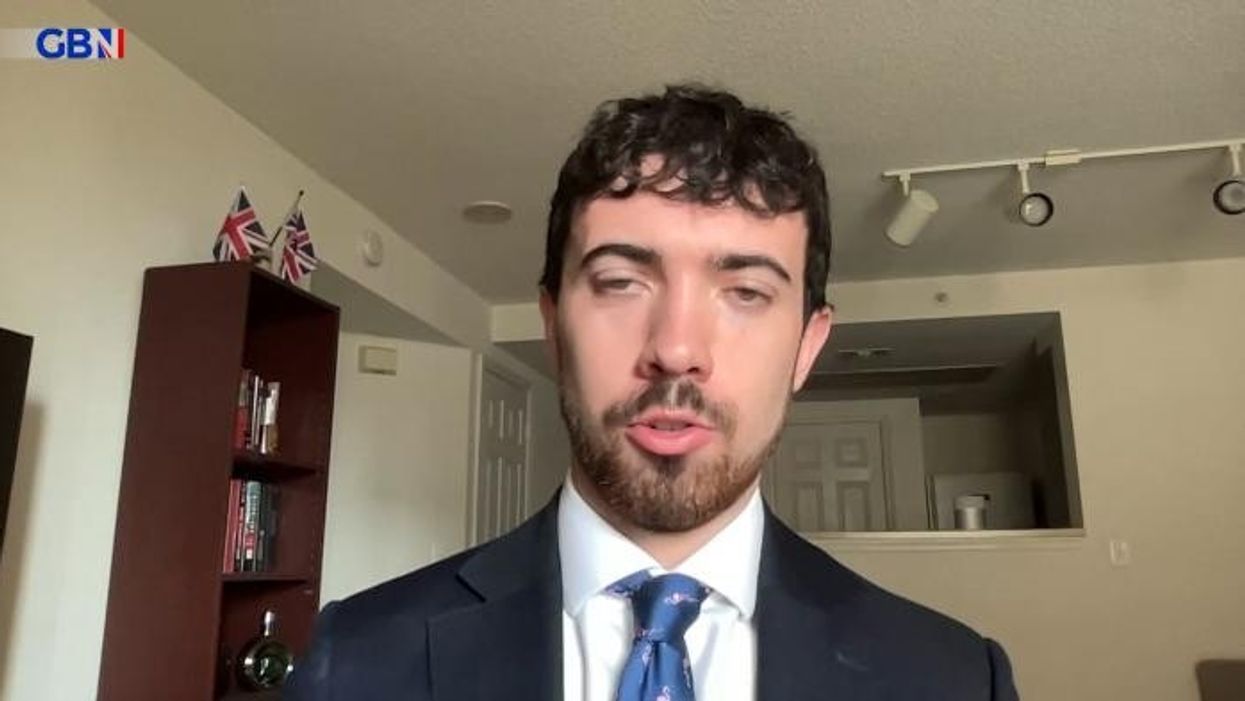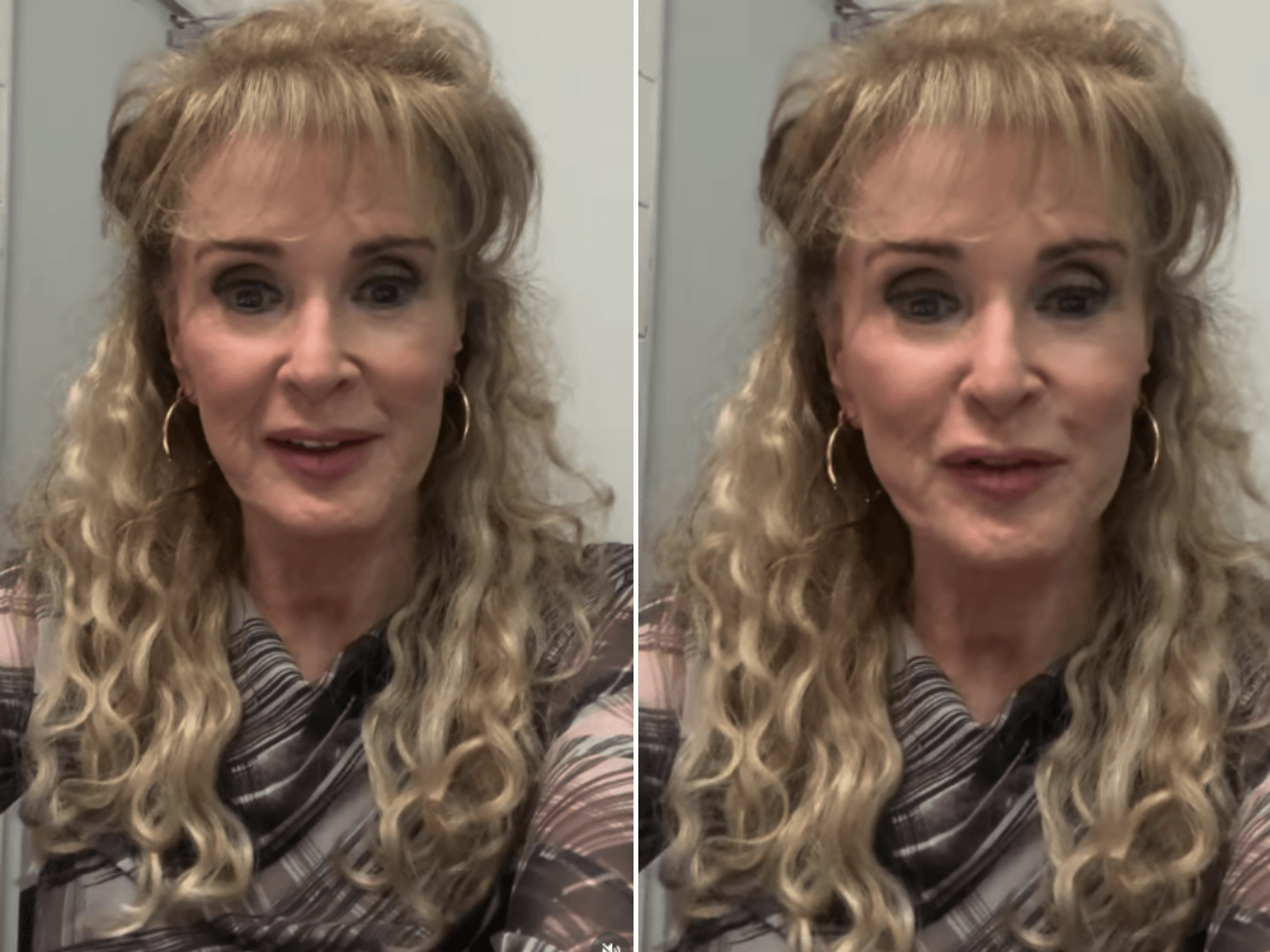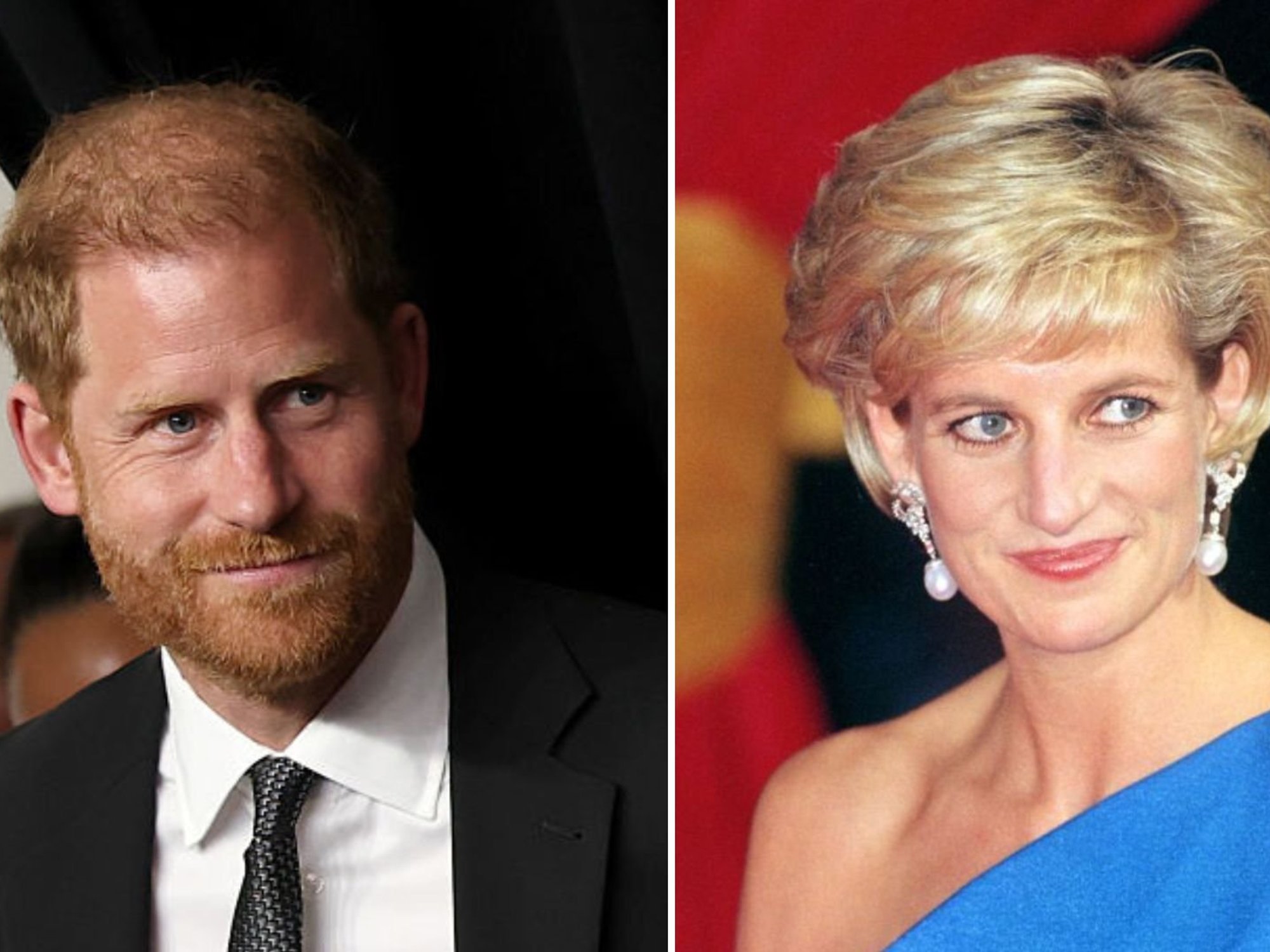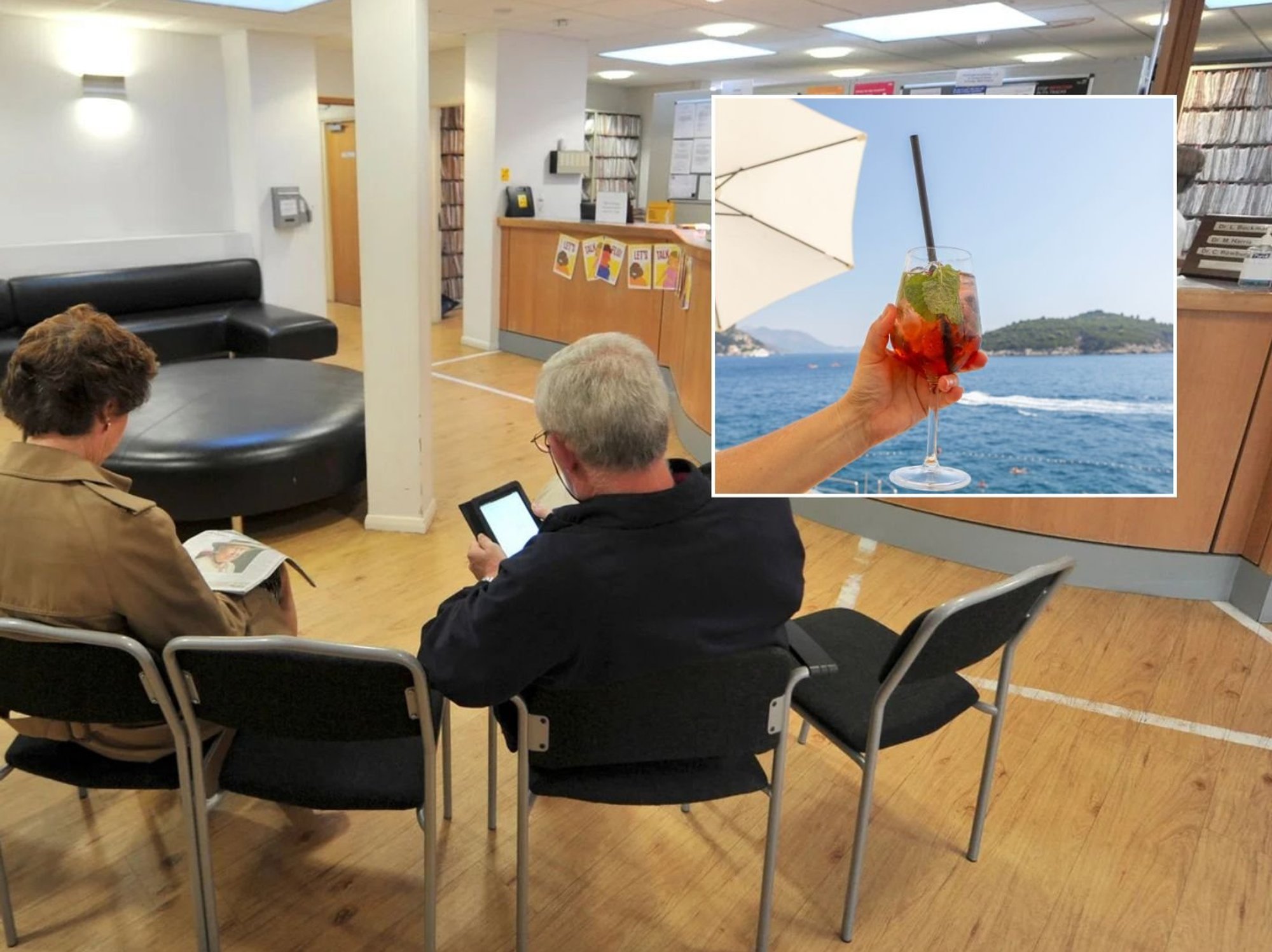Matthew Goodwin: 'The Left hates who we are and makes minority groups sacred'
Matthew Goodwin on how the Left hates England.mp4 |
The professor told this broadcaster that elites have a history of hating England and the majority of the population
Don't Miss
Most Read
Latest
The Left ‘hates’ England and makes minority groups ‘sacred’, Professor Matthew Goodwin has told GB News.
The academic told GB News members that the Left “hate who we are” and accused the establishment of prioritising minorities.
Professor Goodwin said: “The elite class… embraced this idea that racial, sexual, and gender minorities are sacred [and] morally superior, and [that] members of the majority group are to be treated with suspicion, if not contempt, because they are dangerous.”
“They're far-Right thugs. They're extremists, and increasingly, the elite class derive their sense of status, their sense of belonging in many ways, their identity, by denigrating the majority group, its identity, history and culture.”
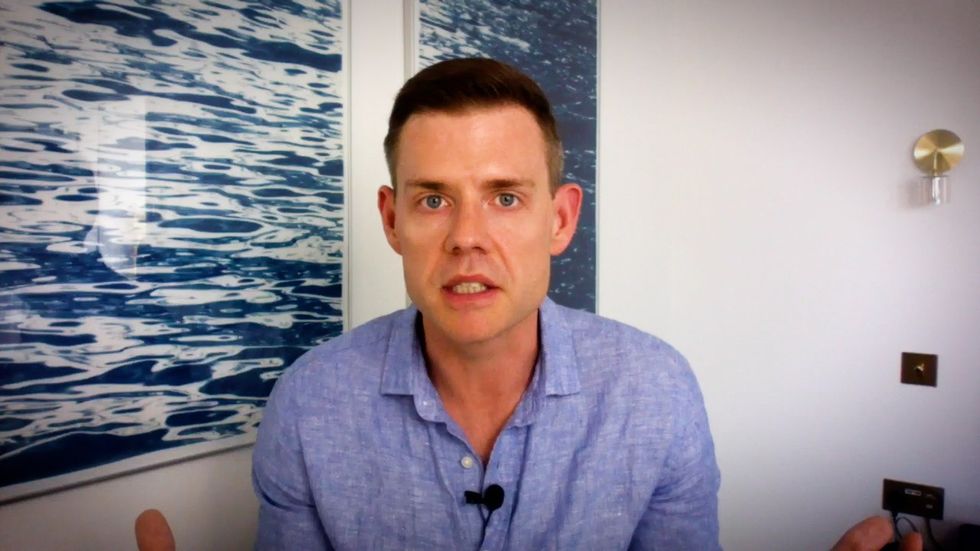
Matthew Goodwin discussed immigration with GB News
The academic continued: “Roger Scruton, a conservative philosopher, famously talked about the culture of repudiation or oikophobia.”
“He talked about the way in which the elite class in England and Britain… has now become fully invested in this culture of repudiation, repudiating the country from from where they belong, because they'd rather derive that legitimacy and status from other elites, from supranational organisations like the European Union for example, which is why the elite class struggled so much with things like Brexit.”
Professor Goodwin said Scruton made his point in the 1990s, before mass migration from outside of Britain began.
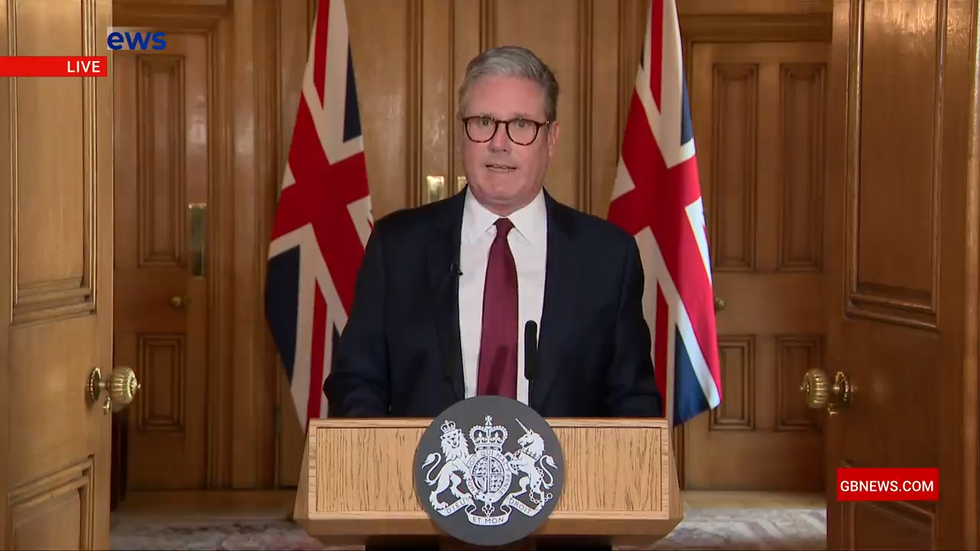 Keir Starmer hit out at protesters | GB NEWS
Keir Starmer hit out at protesters | GB NEWSThe conservative academic told GB News that for decades elites have derived their “sense of esteem and achievement by basically exhibiting a sort of dislike of majority culture”.
In an interview with this broadcaster, last week historian David Starkey referenced Labour MP Emily Thornberry who was sacked by Ed Miliband from the Shadow Cabinet in 2014 after she posted a tweet which was accused of sneering at the St George’s flag.
In recent years academics have urged institutions such as universities and museums to decolonise, meaning to remove colonial symbols and refocus away from Western history and philosophy to other cultures.
Many, including Mr Starkey, have criticised the decolonisation movement as being anti-Western and anti-British.
Professor Goodwin described the “rise of things like Critical Race Theory, we've seen the rise of social justice ideas and movements on the university campuses” as taking over “elite institutions”.
“And that is compounded a lot of this.”
“But most of the people who are writing about what's happening in the West today in terms of the rise of wokeism, a kind of anti-British, anti-Western outlook, trace this really back to the beginning of the 20th century and say that the elite class, over time, has basically diverged from the country that lives around themselves and has basically poured scorn on the majority culture and identity as a way of trying to win more status.”
The professor has faced ire for his comments around the recent anti-immigration protests and riots that swept across Britain.
Responding to Goodwin’s Substack blog on the protests, Conservative commentator Tim Montgomerie wrote on X, formerly Twitter, that “There really is something sulphurous about Matthew Goodwin.”
“Incendiary views. Suspect opinion polls. Massive self-obsession. British public life would be so much better without him.”
However, the professor defended himself, saying that he is “going nowhere” and blamed Montgomerie “and the other ‘conservatives’” for getting Britain “into this mess”.
Professor Goodwin also told GB News that Britain will no longer be majority white British by 2070.
He said that concerns around ethnic demographic decline are not racist, and that it is a legitimate viewpoint to want to keep the familiar.
“Now there are so many more communities who are basically going through this, this rapid change,” he said.
“But to be frank, don't really look like Britain and England anymore. I mean, they're all communities in England that basically don't look like England anymore.”
“And I think that's where the loss of the familiar for many people becomes so existential.”
“They're looking around and saying, well, it doesn't really feel like England anymore.”
“Suddenly it doesn't look like something that I recognise, anymore.”


